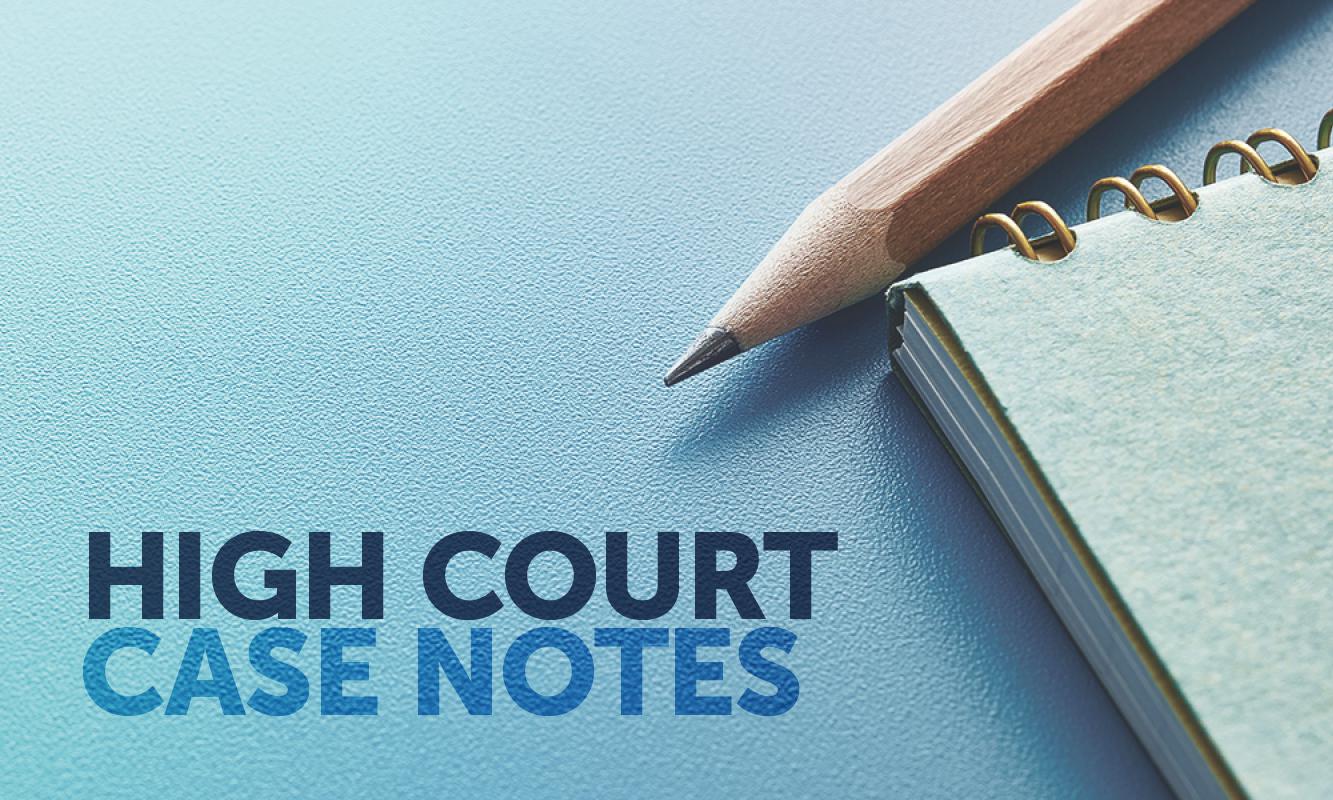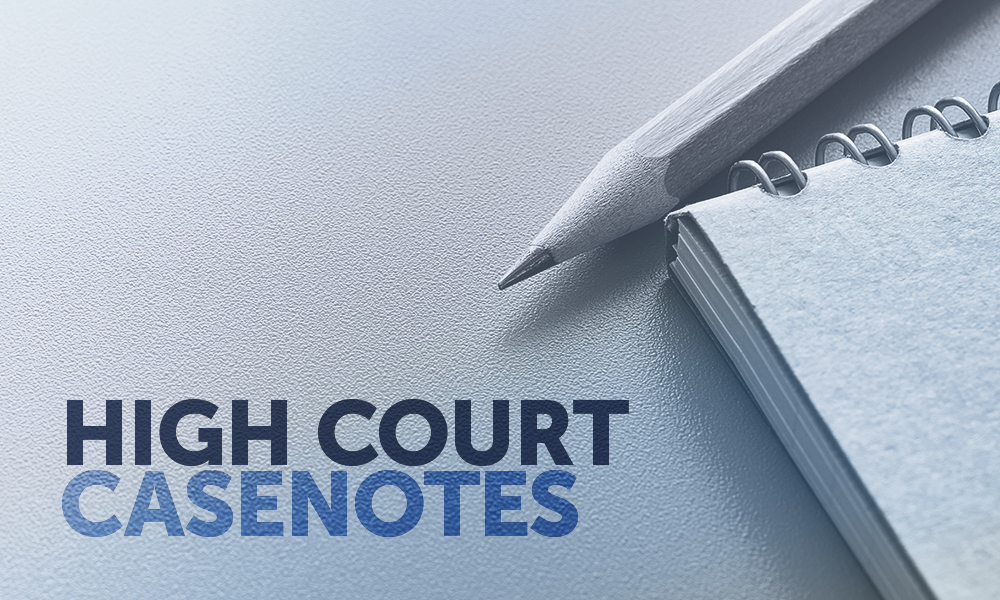In Huxley v The Queen [2023] HCA 40 (6 December 2023), the High Court was required to determine whether the trial judge’s direction to the jury involved a “wrong decision of any question of law” within the meaning of s668E of the Criminal Code (Qld) (Criminal Code) or a miscarriage of justice in the appellant’s conviction for murder.
The appellant, Mr Huxley, was charged with the murder of Mr McCabe. Mr Huxley was tried with two co-accused. One of those co-accused, Mr Rewha, was charged with the assault, occasioning bodily harm of Mr McCabe. The Crown alleged that Mr Rewha assaulted Mr McCabe in a unit in Townsville.
At trial, the Crown adduced evidence from Ms Greer who entered the unit and saw Mr Rewha with a bloodied Mr McCabe. Mr Huxley was not present at the alleged assault. However, the Crown alleged that, some time later, Mr Huxley took Mr McCabe from his unit to another location (where Mr McCabe’s remains were found) and killed him. At trial, Mr Huxley relied on Ms Greer’s evidence to argue, in his defence, that there was a reasonable possibility that the fatal injuries were inflicted by Mr Rewha at the unit and not at the other location.
In his directions to the jury, the trial judge said: “You should only act upon [Ms Greer’s] evidence if, after considering her evidence with the warning that I have given in mind, and all the other evidence in the trial, you are convinced of its truth and accuracy. In particular, consistent with the directions I will give you in relation to the case against Mr Rewha, as a matter of law, you should only act upon her evidence if you are satisfied beyond reasonable doubt that her evidence is truthful, reliable and accurate. If you are not satisfied beyond reasonable doubt that the evidence of Ms Greer is truthful, reliable and accurate, then you should disregard it”. (impugned direction).
Mr Huxley was convicted of Mr McCabe’s murder. The Queensland Court of Appeal dismissed Mr Huxley’s subsequent appeal of his conviction.
Before the High Court Mr Huxley contended that the impugned direction constituted a “wrong decision of a question of law” within the meaning of s668E of the Criminal Code. Mr Huxley asserted that the impugned direction required the jury to be satisfied beyond reasonable doubt that Ms Greer’s evidence was truthful, reliable and accurate before it could be used in their consideration of the charges against any of the three accused.
Mr Huxley argued that the effect of the impugned direction limited the use to be made of Ms Greer’s evidence in his defence, by conveying that her evidence was to be disregarded if the jury did not accept it beyond reasonable doubt. It was not disputed at the hearing that if the impugned direction applied to Mr Huxley’s defence then it was a wrong decision of a question of law that would require a retrial.
A majority of the High Court (Gordon, Steward and Gleeson JJ) held that there was no error and dismissed Mr Huxley’s appeal. The majority, citing Hargreaves v The Queen (2011) 245 CLR 257, observed, at [41], that “‘[i]n every case, the ultimate must be whether, taken as a whole, the judge’s instructions to the jury’ deflected the jury ‘from its fundamental task of deciding whether the prosecution provided the elements of the charged offence beyond reasonable doubt’”. The majority acknowledged, at [61], the limitations in assessing how the jury would have understood the impugned direction by reference to the transcript of the trial alone.
But the majority considered, at [62], that the “immediate impression given by the explicit reference to Mr Rewha’s case” was that the impugned direction was concerned with Ms Greer’s evidence being used in an adverse way in the case against Mr Rewha. The majority also considered, at [68], that the trial judge’s summing up taken as a whole made it clear that the impugned direction would not have been understood by the jury in the way contended by Mr Huxley.
Further, the majority noted, at [92], that Mr Huxley’s counsel did not seek redirection at any point during the trial judge’s summing-up and cited French CJ, Crennan and Kiefel JJ’s observation in King v The Queen (2012) 245 CLR 588 at 611 that counsel’s decision not to seek a redirection “informs consideration of the extent to which, taken in context, the direction was likely to confuse or mislead the jury”.
Gageler CJ and Jagot J, in dissent, considered, at [22], that the impression given by the explicit reference to Mr Rewha’s case indicated that the impugned direction applied to Ms Greer’s evidence generally. Their Honours considered, at [24], that the trial judge’s erroneous direction was not corrected in the balance of the trial judge’s summing up. Indeed their Honours, at [28], found that the trial judge repeated the error. And their Honours, at [29], did not consider that the fact that Mr Huxley’s counsel did not seek a redirection indicated that the impugned direction was cured by the trial judge’s summing up as a whole.









Share this article